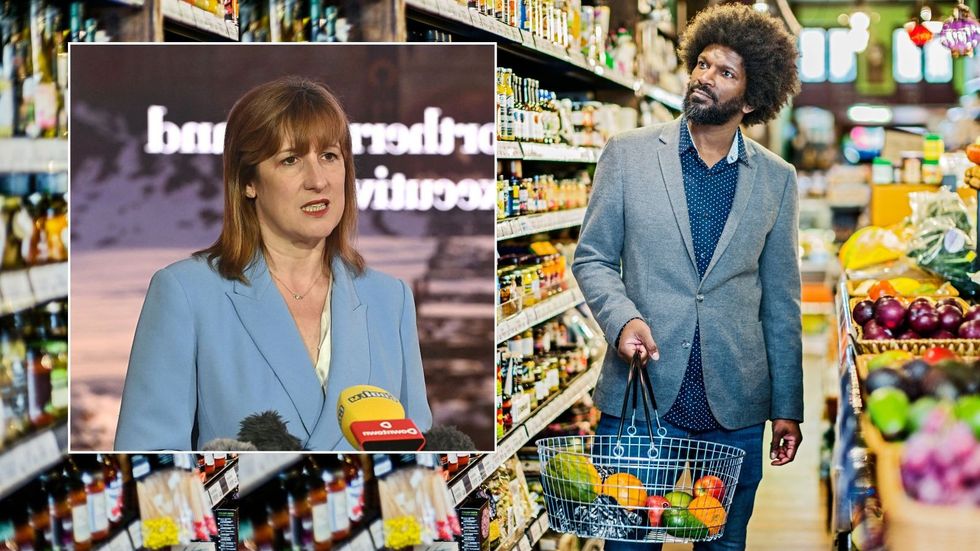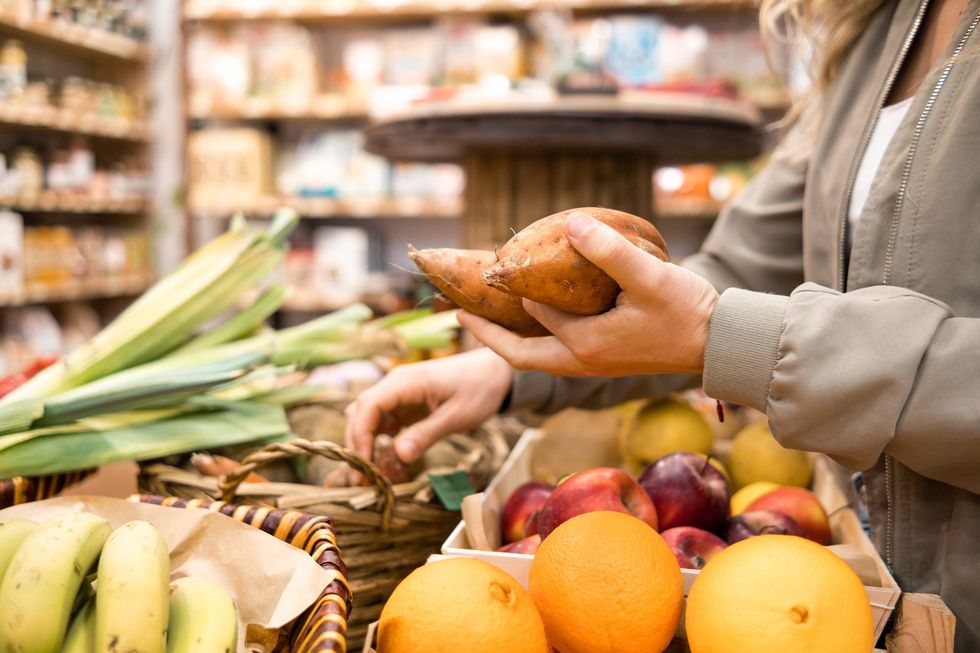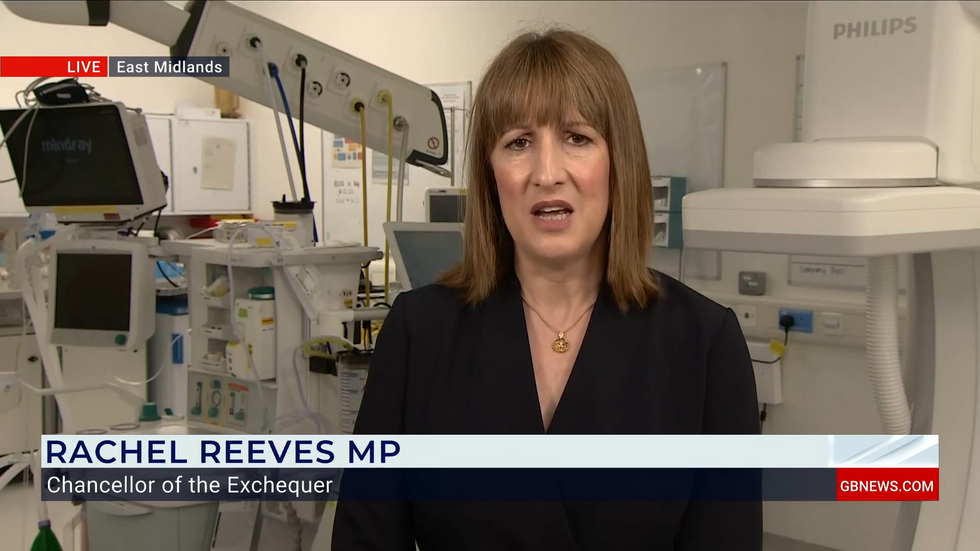Food inflation hits 18-month high as major supermarkets warn Rachel Reeves' tax raid could push prices even higher

Britain on the brink as Liam Halligan warns ‘we are a global outlier’ in dismal inflation warning |
GBNEWS

The rising cost of chocolate, butter and eggs has helped drive food price
Don't Miss
Most Read
Families across Britain are bracing for another squeeze on household budgets as food inflation surges to its highest level in 18 months.
The jump in prices has put Chancellor Rachel Reeves under growing pressure, with critics warning her tax plans risk adding to the strain on shoppers.
Staples such as chocolate, butter and eggs are driving the latest surge, leaving shoppers facing steeper bills just as families juggle back-to-school costs.
Food price inflation rose to 4.2 per cent during August, marking an increase from July's four per cent figure, according to data from the British Retail Consortium-NIQ Shop Price Moniton - the most significant jump witnessed since February 2024.
BRC chief executive Helen Dickinson warned the rise was piling further pressure on families already struggling with the cost of living, while retailers have urged Ms Reeves not to heap further taxes on the sector in her autumn budget.
Helen Dickinson, chief executive of the BRC, warned that the acceleration "adds pressure to families already grappling with the cost of living." She emphasised that retailers continue efforts to limit price rises for households despite mounting operational challenges.
The inflationary pressure arrives as families prepare for back-to-school expenses and reassess their household budgets.
Fresh food costs have accelerated more dramatically, reaching 4.1 per cent inflation compared to 3.2 per cent in the previous month. This surge stems primarily from rising dairy prices affecting everyday essentials like butter and eggs.
Helen Dickinson noted that these staples had experienced "significant increases" due to heightened demand, constrained supply chains and elevated labour costs.
Bosses at Tesco, Sainsbury’s and Boots have piled pressure on Ms Reeves not to hammer them with fresh taxes in the autumn Budget.
Meanwhile, chocolate prices climbed as global cocoa costs remained elevated following poor harvests caused by climate change and crop disease.

The inflationary pressure arrives as families prepare for back-to-school expenses and reassess their household budgets
|GETTY
By contrast, prices for longer-lasting foods such as tinned goods have begun to ease. Inflation for these products dropped to 4.2 per cent in August, down from 5.1 per cent in July, offering a little relief for shoppers in some categories.
The split shows that fresh and perishable foods are carrying most of the inflationary pressure.
The Bank of England has warned that rising grocery bills could spill over into the wider economy. Policymakers fear higher food costs will push up expectations of inflation, leading to demands for bigger pay rises and driving up prices in other areas.
The central bank's monetary policy committee reduced interest rates to four per cent this month but cautioned that food price inflation represents an unexpected source of pressure. This development could prevent further rate cuts during the remainder of the year.

Official estimates suggest food price inflation may exceed five per cent in coming months
| GETTYOfficial estimates suggest food price inflation may exceed five per cent in coming months. The Bank has acknowledged that April's national insurance contribution increases contributed to accelerating food costs, with retailers facing a £7billion burden from last year's budget measures.
Retail industry leaders have intensified pressure on Ms Reeves ahead of the autumn budget, warning against additional tax burdens on the sector.
More than 60 retail executives, including chiefs from Tesco, Sainsbury's and Boots, coordinated a letter through the BRC cautioning that further tax increases could undermine government plans to improve living standards.
 Rachel Reeves is preapring for this year's Autumn Budget | GB NEWS
Rachel Reeves is preapring for this year's Autumn Budget | GB NEWS The industry bosses predicted food and drink inflation could reach six per cent later this year if current trends continue. In a letter co-ordinated by the BRC, they suggested food and drink inflation could up to six per cent later this year.
Mike Watkins at NIQ said: “The uptick reflects global supply costs, seasonal food inflation driven by weather, the end of promotions and a rise in underlying operational costs.
"As shoppers return from holidays, many may need to reassess household budgets."
As consumers return from summer holidays, many households may need to reassess their budgets in response to mounting bills.
More From GB News










